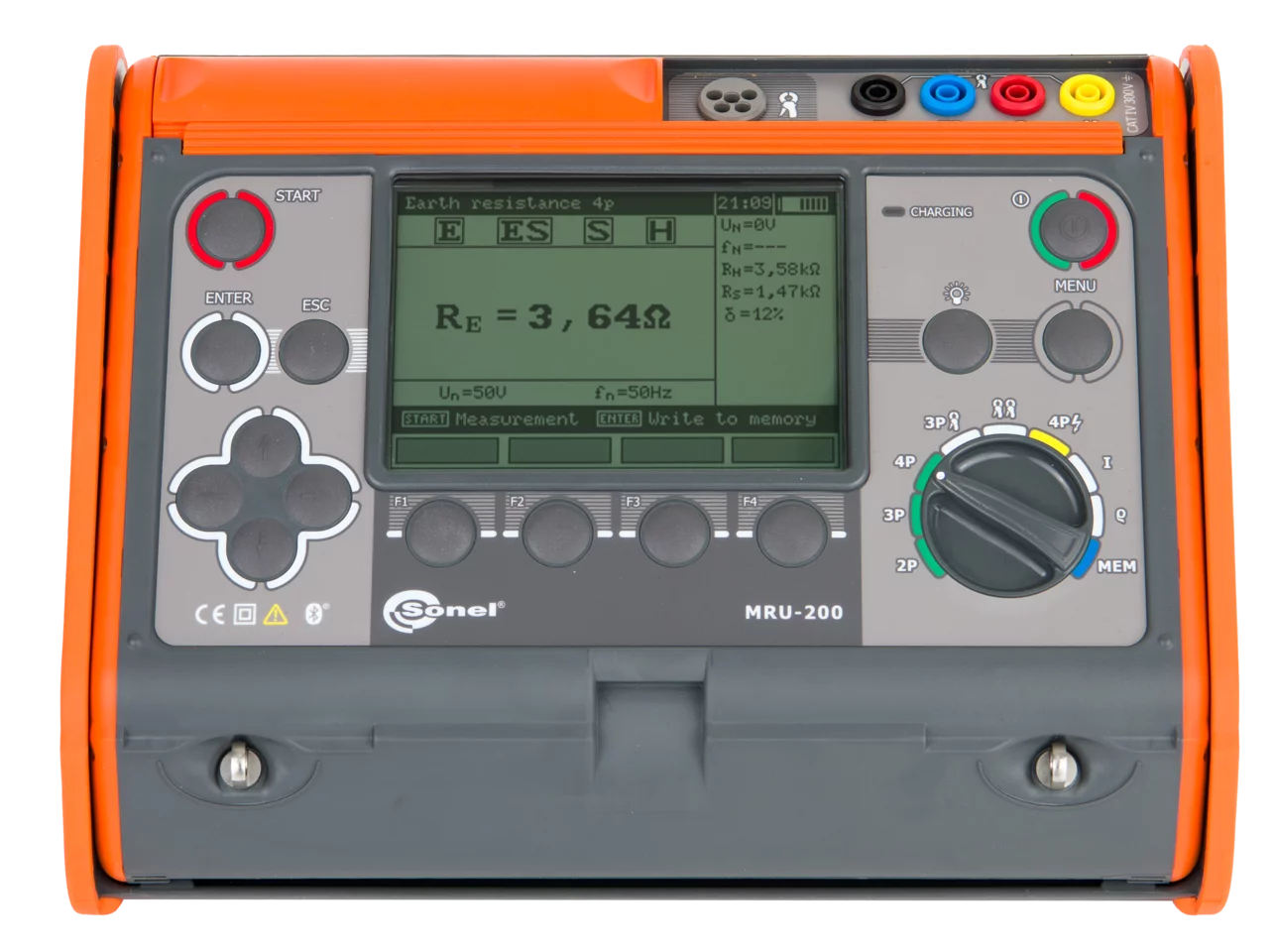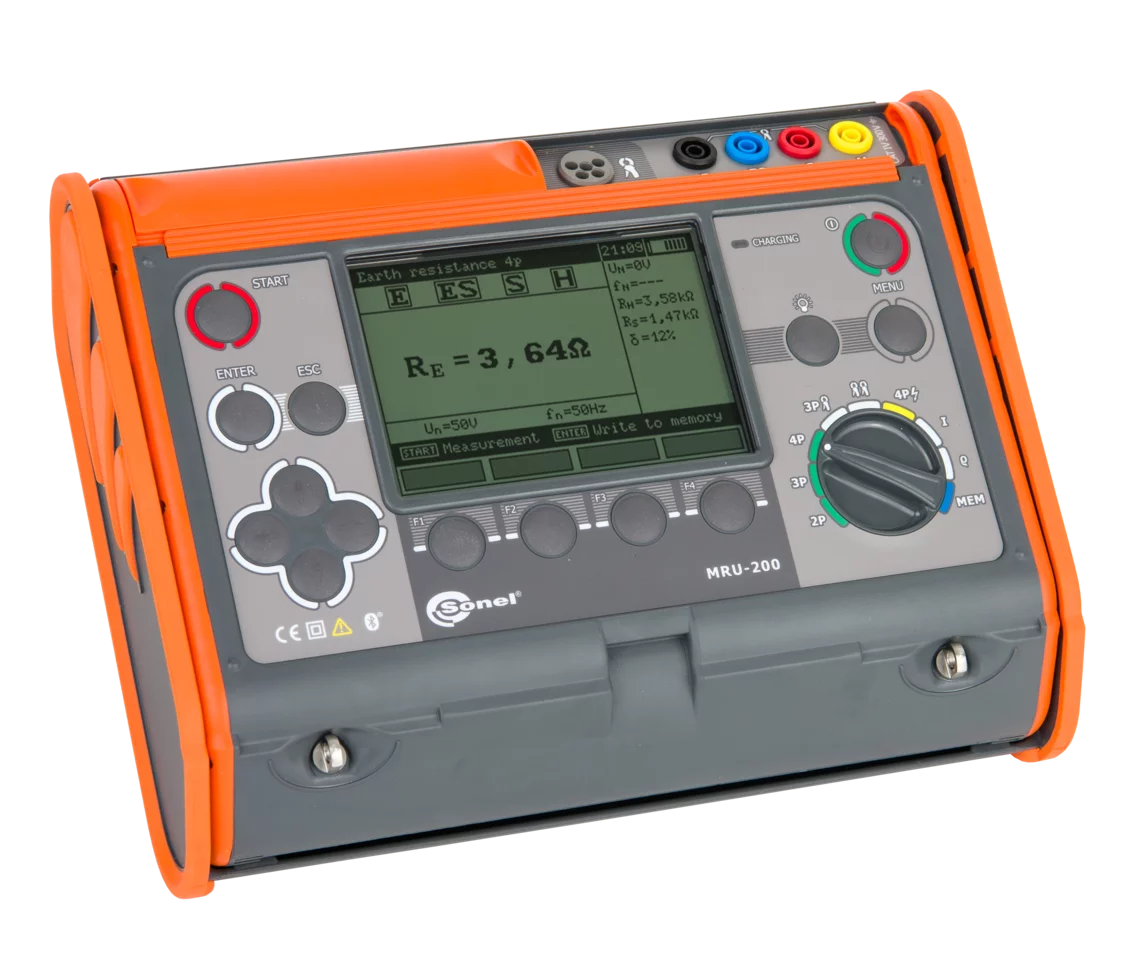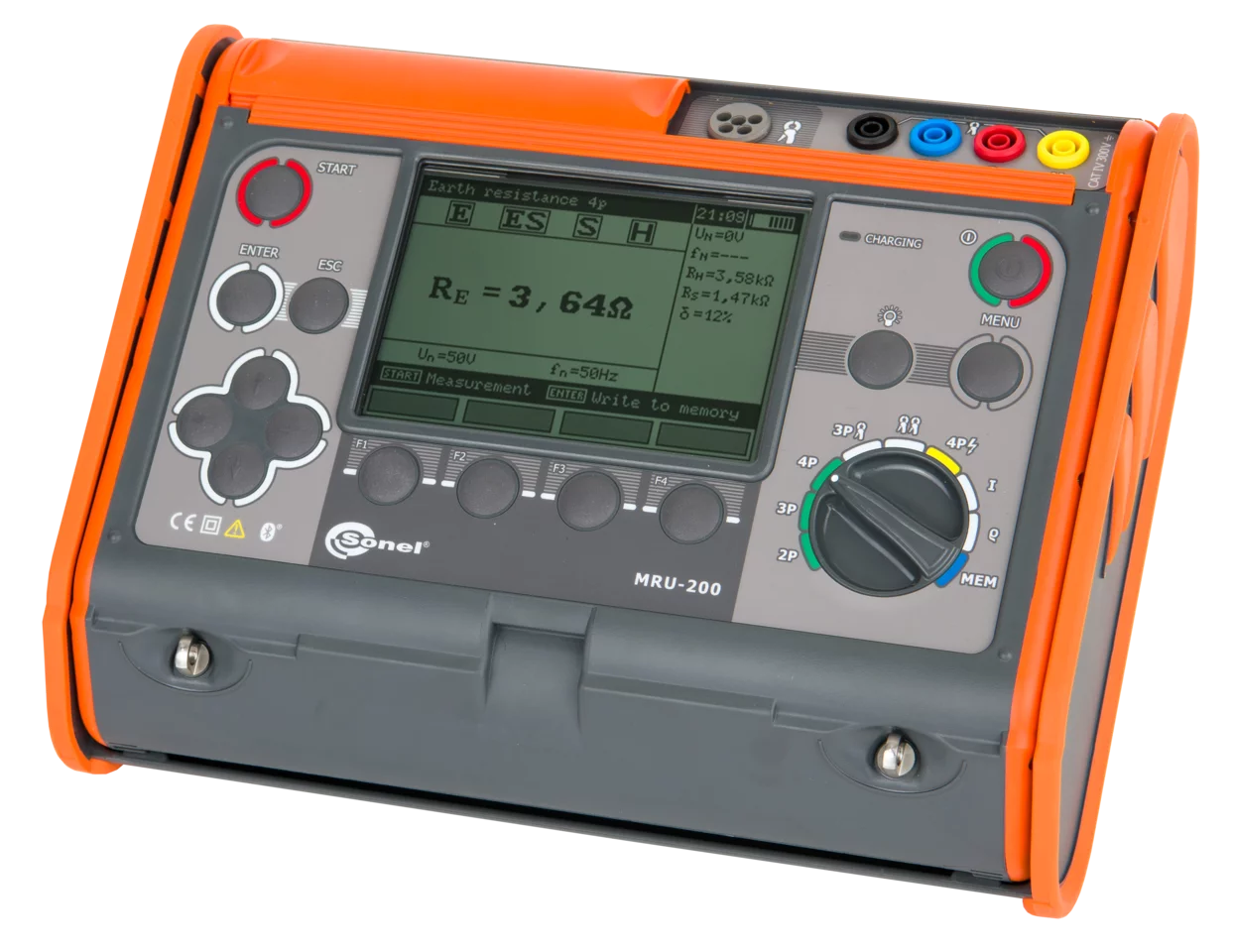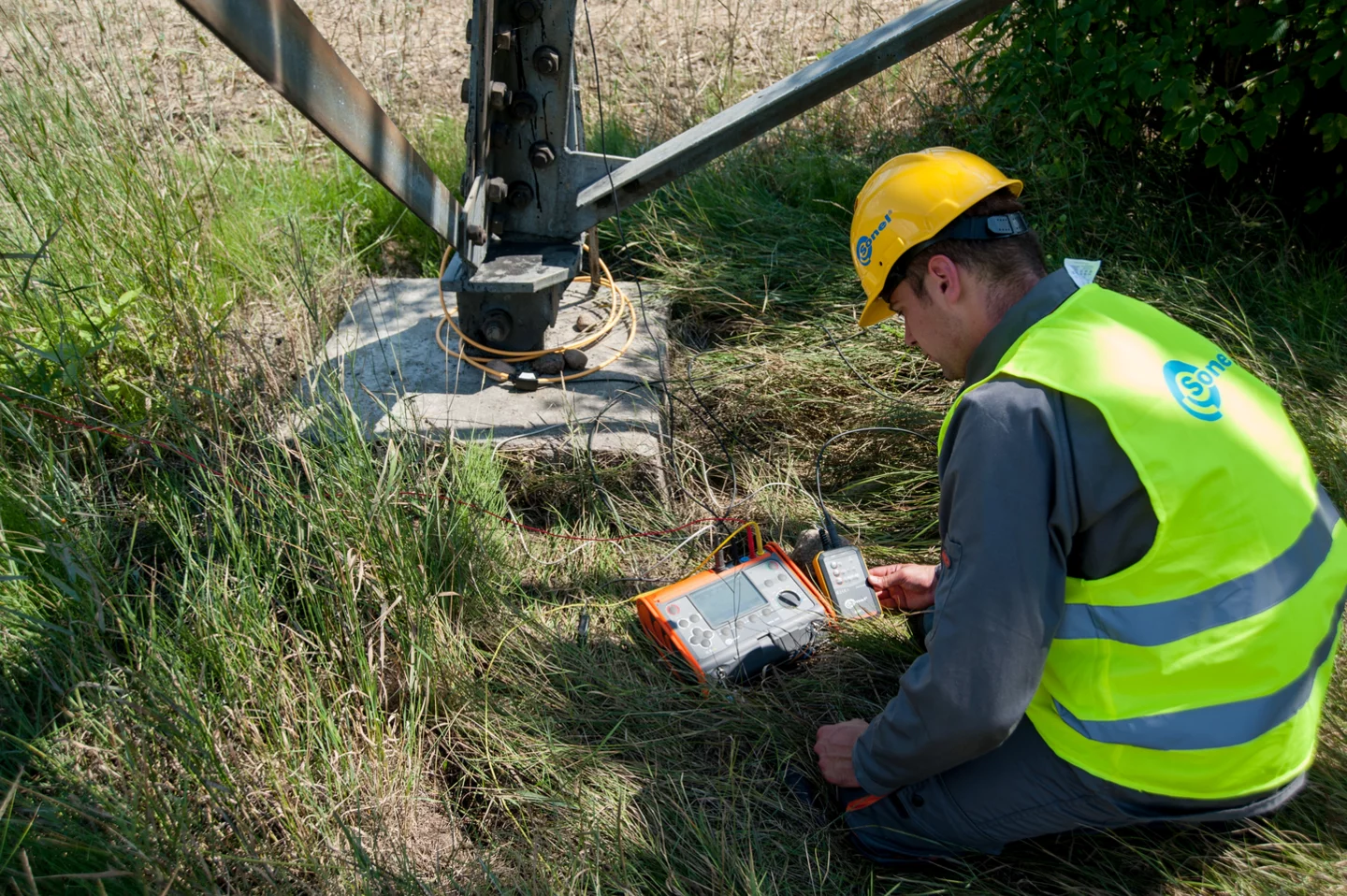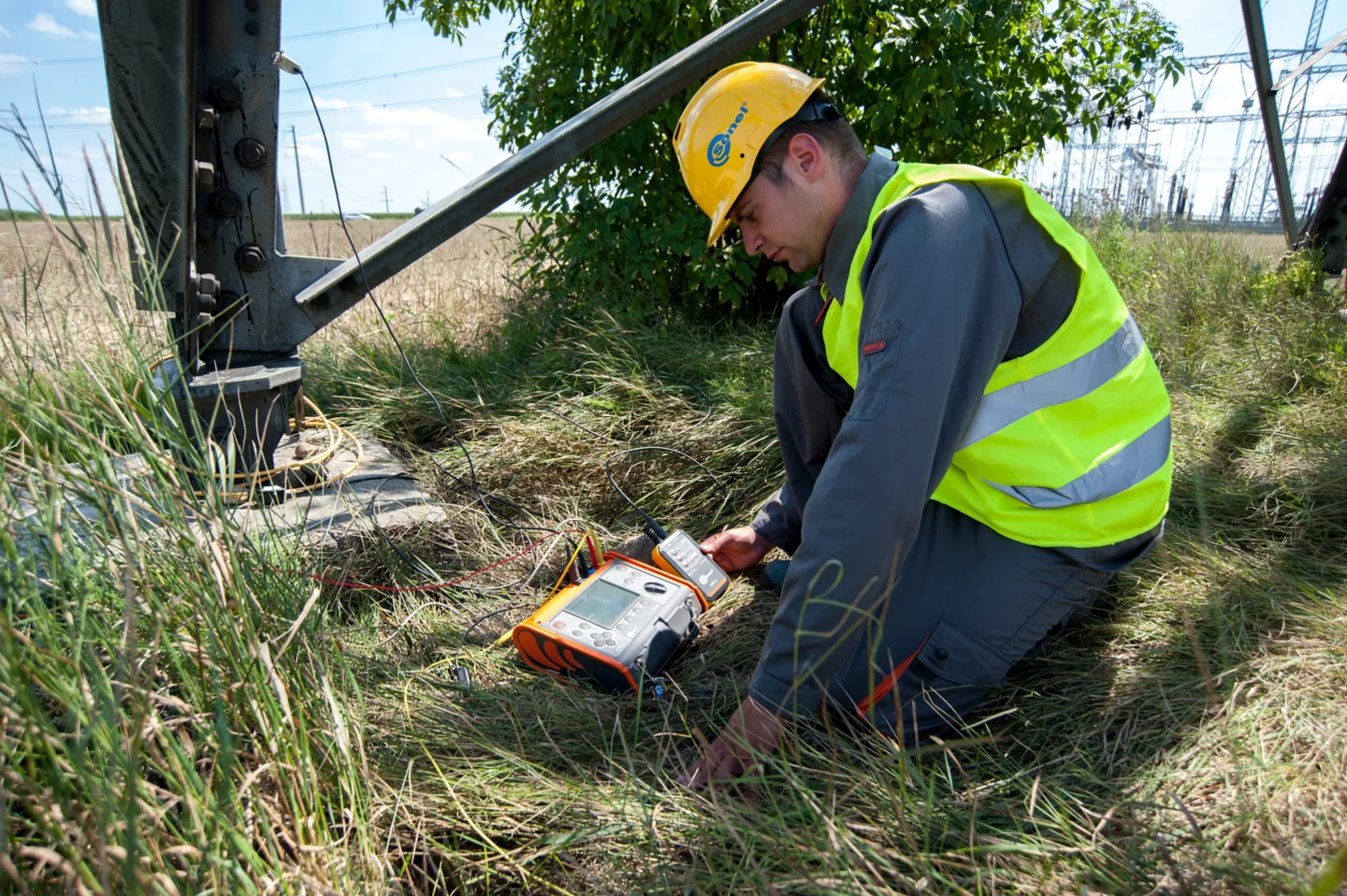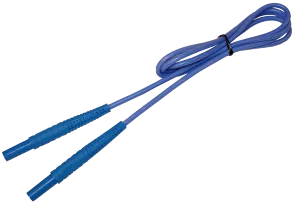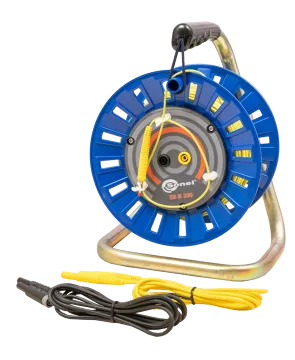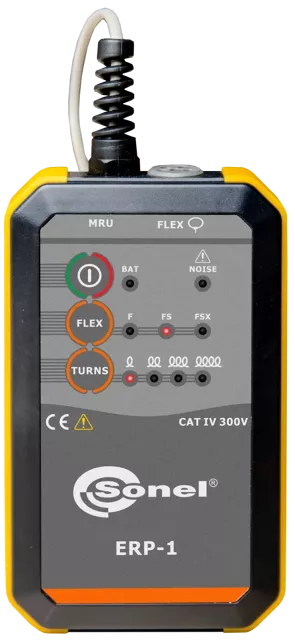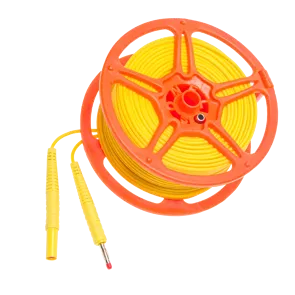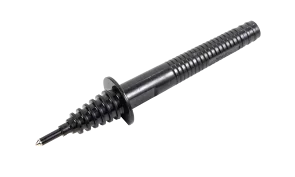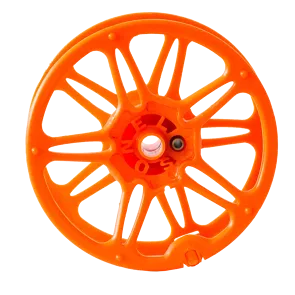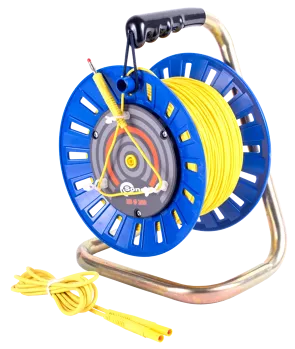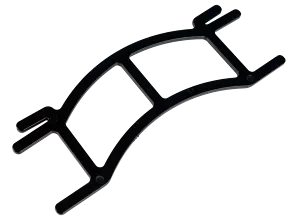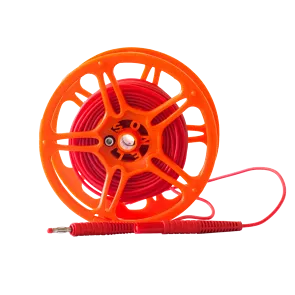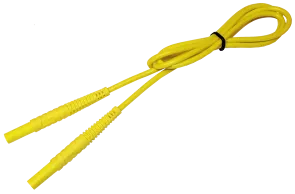Opis
Dane techniczne
Akcesoria w zestawie
Akcesoria dodatkowe
Pliki do pobrania
Wszechstronny miernik uziemień i rezystywności gruntu
Miernik rezystancji uziemienia i rezystywności gruntu Sonel MRU-200 do pomiarów rezystancji uziemienia i rezystywności gruntu różnymi metodami.
Cechą, która zdecydowanie wyróżnia ten model na tle innych tego rodzaju mierników to zastosowanie wszystkich znanych metod pomiaru rezystancji uziemień. Pomiar może być przeprowadzony za pomocą metody technicznej 3-biegunowej i 4-przewodowej, także przy użyciu dodatkowych cęgów (uziemienia wielokrotne), jak również metodą dwucęgową i metodą impulsową (pomiar impedancji uziemienia).
Zastosowanie metody dwucęgowej umożliwia wykonanie badania bez konieczności użycia dodatkowych sond pomocniczych, które wbijane są do gruntu. Z kolei metoda udarowa stosowana jest między innymi przy diagnozowaniu uziemień odgromowych. Wykorzystuje się ją również do pomiarów uziemień rozległych, wielokrotnych oraz połączonych ( także pod ziemią). Zaletą tej metody jest brak konieczności ingerencji w obwód. Metoda udarowa umożliwia wykonywanie pomiarów zgodnie z normą PN-EN 62305 – konieczność pomiaru impedancji uziemienia.
To jeszcze nie koniec rozbudowanych możliwości, jakie zapewnia miernik Sonel MRU-200. Urządzenie posiada dodatkowo funkcję pomiaru rezystywności gruntu, ciągłości połączeń ochronnych i wyrównawczych, a przy użyciu cęgów również prądów upływu lub prądów uszkodzeniowych.
Pomijając dużą ilość funkcji i wiele możliwości pomiarowych, miernik MRU-200 zasługuje na uznanie również ze względu na wysoką dokładność uzyskanych wyników. Zakres pomiarowy - pomiary zgodne z normą PN-EN 61557 - już od 0,100 Ω.
Metody pomiarowe
- Metoda impulsowa – pomiar uziemień odgromowych impulsem pomiarowym o zboczu 4/10 μs, 8/20 μs, 10/350 μs
- Metoda 3-biegunowa i 4-przewodowa – pomiar uziemień z sondami pomocniczymi
- Metoda 3-biegunowa z cęgami – pomiar uziemień wielokrotnych
- Metoda dwucęgowa – pomiar uziemień, gdy nie jest możliwe zastosowanie sond pomocniczych
- Rezystywność gruntu – metoda Wennera
- Rezystancja przewodów uziemiających i wyrównawczych prądem ≥200 mA z funkcją autozerowania – spełnia wymogi normy PN-EN 61557-4
- Pomiar prądu upływu
Cechy dodatkowe
- Pomiar rezystancji sond pomocniczych RS i RH
- Pomiar napięć zakłócających
- Pomiar częstotliwości sygnałów zakłócających
- Pomiar w obecności napięć zakłócających pochodzących od sieci o częstotliwości 16 2/3 Hz, 50 Hz, 60 Hz, 400 Hz
- Wybór napięcia pomiarowego (25 V i 50 V)
- Automatyczne wyliczanie rezystywności gruntu w omometrach (Ωm) i omostopach (Ωft)
- Pamięć 990 pomiarów (10 banków po 99 komórek)
- Funkcja kalibracji cęgów
- Zegar czasu rzeczywistego (RTC)
- Transmisja danych do komputera i urządzeń mobilnych
- Wskazywanie stanu akumulatorów
Obszary zastosowań
Miernik MRU-200 powstał z myślą o ciężkich warunkach pracy. Generuje prąd pomiarowy przekraczający 200 mA, co pozwala na skuteczne wykonanie pomiarów uziemienia obiektów energetycznych takich jak stacje transformatorowe czy stacje elektroenergetyczne.
Dzięki metodom wykorzystującym cęgi nie jest konieczne rozpinanie złącz kontrolnych, czyli czynność niekiedy bardzo uciążliwa. Odgrywa to szczególną rolę podczas wykonywania prac na obiektach narażonych na działanie warunków atmosferycznych, gdzie elementy łączeniowe bywają skorodowane lub zaśniedziałe.
Graficzny interfejs użytkownika dostarcza czytelnych odczytów i zrozumiałych komunikatów. Przekłada się to na szybką, bezproblemową obsługę.
Metoda impulsowa
Dzięki MRU-200 można badać uziemienia o charakterze odgromowym, miernik potrafi bowiem symulować warunki występujące podczas uderzenia pioruna – generując prąd cechujący się znormalizowaną stromością narastania czoła i czasem do półszczytu. Dostępne są kształty impulsów o zboczu 4/10 μs, 8/20 μs, 10/350 μs.
Współpraca z adapterem ERP-1
Adapter ERP-1 pozwala na wykonanie badań uziemień za pomocą cęgów elastycznych. Jest to szczególnie przydatne w przypadku np. elektroenergetycznych słupów kratowych – nie trzeba wówczas wyłączać linii ani rozpinać złącz kontrolnych. Autorski algorytm umożliwia sprawdzenie kierunku prądu dla poszczególnych pomiarów i ułatwia znalezienie uszkodzenia, np. skorodowanej bednarki.
Możliwości
Dostępne w przyrządzie metody pomiarowe pozwalają na kompleksową kontrolę uziemień roboczych i ochronnych. Funkcja kalibracji przewodów pomiarowych eliminuje wpływ ich rezystancji na wynik. To jednak dopiero początek.
- Metoda czteroprzewodowa oznacza bardzo dokładny pomiar spodziewanych małych wartości rezystancji – eliminuje rezystancję przewodu łączącego miernik z uziemieniem.
- Pomiar rezystancji przewodów uziemiających i wyrównawczych prądem powyżej 200 mA spełnia wymagania normy PN-EN 61557-4.
- Przed wykonaniem pomiaru miernik sprawdza, czy w badanym obiekcie nie występuje zbyt wysokie napięcie zakłócające, mogące świadczyć o dodatkowych nieprawidłowościach.
Pamięć i wyniki
Wyniki można zapisywać w pamięci urządzenia. Jest ona podzielona na 10 banków po 99 komórek, z których każda odpowiada jednemu pomiarowi. Wyniki te w bardzo prosty sposób można przenieść do programu komputerowego Sonel Reader w celu archiwizacji lub późniejszych analiz i badań.
Interfejs komunikacji bezprzewodowej Bluetooth umożliwia przerzucenie wyników pomiarowych do oprogramowania PC oraz na telefon komórkowy z aplikacją mobilną Sonel MRU Mobile. Oznacza to nie tylko możliwość archiwizacji danych, ale też ich dalszą wysyłkę – prosto z miejsca pomiaru jako wiadomość elektroniczną.
